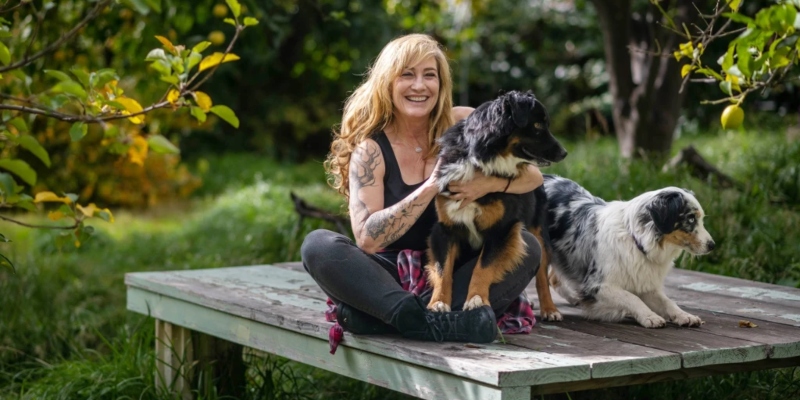
Field Notes for Surviving a Family Cult: Michelle Dowd Revisits Her Childhood in Forager
In Conversation with Mitzi Rapkin on the First Draft Podcast
First Draft: A Dialogue of Writing is a weekly show featuring in-depth interviews with fiction, nonfiction, essay writers, and poets, highlighting the voices of writers as they discuss their work, their craft, and the literary arts. Hosted by Mitzi Rapkin, First Draft celebrates creative writing and the individuals who are dedicated to bringing their carefully chosen words to print as well as the impact writers have on the world we live in.
In this episode, Mitzi talks to Michelle Dowd about her new memoir, Forager: Field Notes for Surviving a Family Cult.
Subscribe and download the episode, wherever you get your podcasts!
From the episode:
Mitzi Rapkin: In your memoir you write in a way as if everything is happening in the moment. It feels very present, it is not retrospective with the knowledge you have now adding to the narrator’s position. You start off the memoir when you are around nine years old, and we follow you into your teen years. We see the world you see through your eyes as it’s happening. I’m curious about choosing that narrative stance if you could share more about that.
Michelle Dowd: That was a very deliberate choice, as was to determine the years that I follow in real time as a child, from the time we get to the mountain to the time that I leave the mountain, which was almost exactly 10 years. I chose to tell it that way, because at the time I was living it, it didn’t make sense to me. And I also understand having been educated and having become a teacher, that my understanding of the organization now is much different than my understanding while I was living it.
While I was growing up there, especially having been born there, there was no other world. And if I tell the story, even now, if I try to tell you the story from the perspective of an adult who is analyzing what happened, it’s very hard not to look at the intent of other players in the story, and I felt that the danger was to try to say, well, this is what my mom was trying to do, and this is what my dad was trying to do and this is my grandpa’s intent when he began the organization, or these are what the other young people who joined or decided to stay—this is what they were intending to do. And I feel to this day, that’s very convoluted, because there are so many different versions of why people were there.
Choosing to tell the story from a child born there who believed in what she was being told, until she started questioning it gave me the liberty to unfold that community in real time so that the reader is learning more about the world as I, as a narrator, am learning more about the world. And so, it felt like a vehicle that was more honest and fair to say from this vantage point, this is what I saw, and not try to make distinctions between what was happening simultaneously, but instead to use my own lens and move through space as I saw it. It felt like a way of inviting readers into the space rather than trying to explain it like a painting you know, like here’s what you’re looking at.
*
Michelle Dowd is a journalism professor and contributor to The New York Times, The Los Angeles Book Review, The Alpinist, Catapult, and other national publications. She is Faculty Lecturer of the Year for 2022 at Chaffey College, where she founded the award-winning literary journal and creative collective, The Chaffey Review. Her memoir is called Forager: Field Notes for Surviving a Family Cult.
First Draft: A Dialogue on Writing
First Draft: A Dialogue on Writing is a literary podcast produced and hosted by Mitzi Rapkin. Each episode features an in-depth interview with a fiction, non-fiction, essay, or poetry writer. The show is equal parts investigation into the craft of writing and conversation about the topics of an author’s work.



















